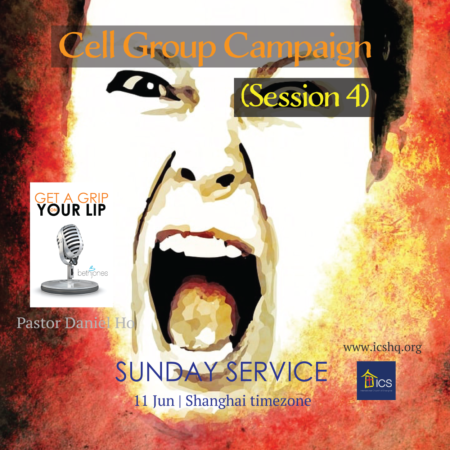If you are have having problems watching the video or listening to the audio, please click “Save Video” or “Save Audio” above to download to your computer.
For we all stumble in many things. If anyone does not stumble in word, he is a perfect man, able also to bridle the whole body. Indeed, we put bits in horses’ mouths that they may obey us, and we turn their whole body. Look also at ships: although they are so large and are driven by fierce winds, they are turned by a very small rudder wherever the pilot desires. Even so the tongue is a little member and boasts great things.
See how great a forest a little fire kindles! And the tongue is a fire, a world of iniquity. The tongue is so set among our members that it defiles the whole body, and sets on fire the course of nature; and it is set on fire by hell. For every kind of beast and bird, of reptile and creature of the sea, is tamed and has been tamed by mankind. But no man can tame the tongue. It is an unruly evil, full of deadly poison. With it we bless our God and Father, and with it we curse men, who have been made in the similitude of God. Out of the same mouth proceed blessing and cursing. My brethren, these things ought not to be so. Does a spring send forth fresh water and bitter from the same opening? Can a fig tree, my brethren, bear olives, or a grapevine bear figs? Thus no spring yields both salt water and fresh.
James 3:2-12 (NKJV)
CG Discussion Questions:
1. How can you relate to the scripture reference of having an untamed tongue with the destructive power of setting the course on fire and bringing unruly evil or deadly poison to the world? Have you come across anyone whose words tend to come out with bitterness, hostility or resentment and how does the spring of bitter water reveal about the bad experiences and the sin nature that is working in the heart of these people?
(James 3:2-12)
2. By self-examining your track of words spoken, what type of words should not be said, may have got you into trouble or caused harm to others? What is the difference between having a healthy disagreement and sowing discord and how should we react when a possibility of sowing discord arises in our family, workplace, or church?
(Proverbs 6:14, 19; Proverbs 10:19)
3. Have you noticed the difference between words that carry substance with depth by a wise person and a fool around you who just talks with words that are empty, discourage and minister nothing? Discuss how you can live out the transformed life as a new creation from the inside out by reigning over your flesh and taming your tongue to flow out words that encourage, comfort and build up others.
(John 3:5-6; 2 Corinthians 5:17; Ephesians 4:23-24; Philippians 4:13; 1 Peter 3:3-4)
